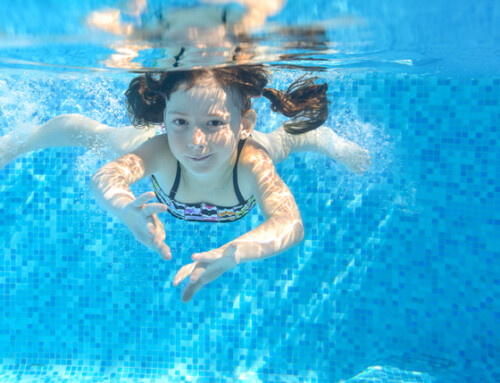 The Top Scientific Benefits of Year-Round Swimming Lessons
The Top Scientific Benefits of Year-Round Swimming Lessons
Many parents enroll their children in swimming lessons for a few months, with large segments of time between one enrollment and the next. However, research has shown that children benefit the most when they receive swimming lessons throughout the entire year. Year-round swimming lessons are beneficial to both parent and child, and they have been proven to provide the following physical, mental, and relationship advantages and benefits:
1. Increases safety by reducing risk of drowning.
The better a child is able to swim, the greater their defense against drowning. The Archives of Pediatric and Adolescent Medicine (2009) confirms this, finding that swimming lessons can reduce the risk of drowning in one to four-year-old children by as much as 88 percent
2. Enhances the child’s overall mental, physical, social, and emotional development.
Research has shown that children who receive professional swimming lessons on a year-round basis are more coordinated and stronger than those who don’t. Those who begin year-round lessons in infancy have greater self-discipline and self-esteem. Their problem-solving skills and intelligence equate to higher academic achievement. In addition, they are more likely to be independent and at ease in social interactions. Swimming lessons provide a social structure (between instructor, parent(s), and/or other clients) that teaches a child to observe others and follow instructions, while in an enjoyable, learning environment.
3. Greater progress
Infants and children who receive swimming lessons throughout the year make faster and greater progress. They do not need to be retaught their skills, which eliminates the necessity of starting over and the potential for regression of their skills.
4. Increased motor, cognitive, and neurological development.
Swimming improves the body’s core, which strengthens both motor and cognitive development. Infants and children who swim on a year-round basis have a greater sense of balance and control of movement. According to studies, they also tend to have higher IQs. Water also increases the perception and sensitivity of touch because it has far greater resistance than air. This increased perception strengthens neurological development in the child.
5. Improves memory and learning.
Movement, exercise, and repetition all affect our memory. Year-round swimming in infants and children enhances the memory because it increases the capacity of the area of the brain that is responsible for learning. Scientifically, swimming helps the development of a child’s brain because it requires cross-pattern movements that use the four brain lobes and the cerebral hemisphere at the same time.
While any swimming lessons will benefit a child, the greatest benefit is seen when a child begins formal swimming lessons in infancy and continues on a year-round basis until they reach the age of five. These are the developmental years–a time when the bond between parent and child is established and the physical, learning, and social skills of a child are being formed. Swimming lessons are a proven way to provide your child with the safety he/she needs, while providing the physical, emotional, and mental benefits they deserve.

